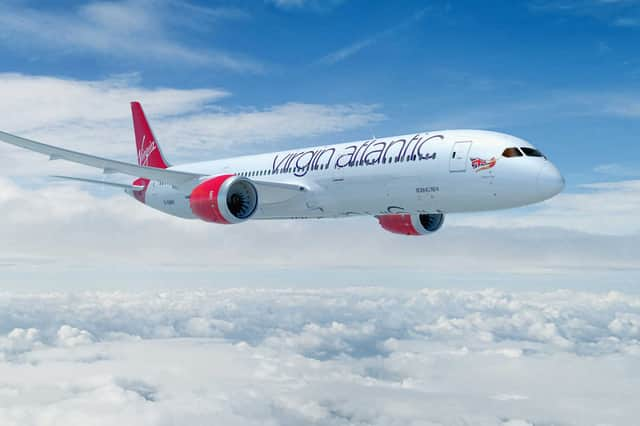University of Sheffield researchers behind world-first transatlantic flight using 100% sustainable fuel
and live on Freeview channel 276
The history-making Virgin Atlantic flight from London Heathrow to New York JFK today, Tuesday, November 28, has been hailed by Prime Minister Rishi Sunak and others as a major milestone in the development of more eco-friendly air travel.


Engineers in Sheffield had helped to test the fuel used for the Boeing 787 flight, at the university's sustainable aviation fuel (SAF) research and development facility, described as the first of its kind in the UK.
Advertisement
Hide AdAdvertisement
Hide AdFlight100, as it has been dubbed, is said to demonstrate the potential to use SAF rather than normal jet fuel on long-haul flights.
It follows more than a year of collaboration between a Virgin Atlantic-led consortium including the University of Sheffield, Imperial College London, Boeing, Rolls-Royce, BP, and others, which was partly funded by the UK’s Department for Transport.
What is sustainable air fuel and how does it differ from traditional jet fuel?
Working together, researchers from Sheffield and Imperial had used a smaller-scale aircraft engine to measure the particulate matter emitted, showing that SAF reduces CO2 emissions by up to 70 per cent compared to traditional jet fuel.
The work was carried out at the University of Sheffield's SAF research and development facility, within the university's Innovation District, located off junction 33 of the M1.
Advertisement
Hide AdAdvertisement
Hide AdProfessor Mohamed Pourkashanian, head of the university's Energy Institute and Sheffield’s lead on the flight, called the flight a 'momentous' occasion.
He added: "We are very proud to be part of this excellent project and hope that it brings with it a future of low/zero-carbon, safe air travel."
Sustainable aviation fuel looks, smells and functions like traditional jet fuels, and can be used in existing engines, but is made from waste products.
Comment Guidelines
National World encourages reader discussion on our stories. User feedback, insights and back-and-forth exchanges add a rich layer of context to reporting. Please review our Community Guidelines before commenting.